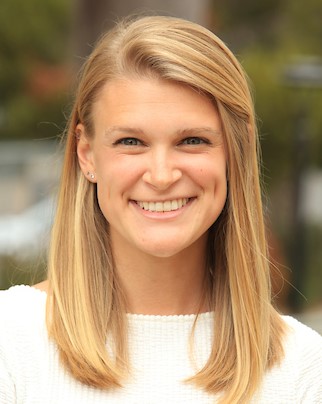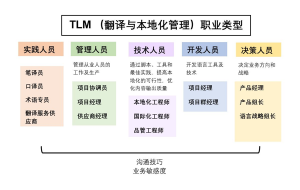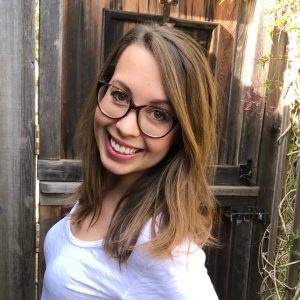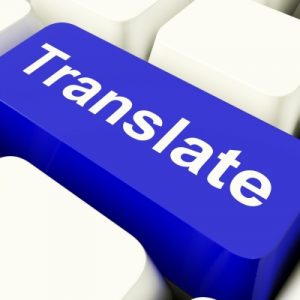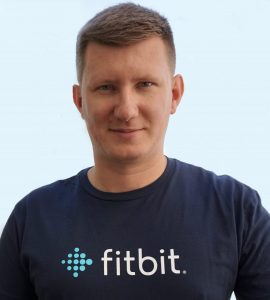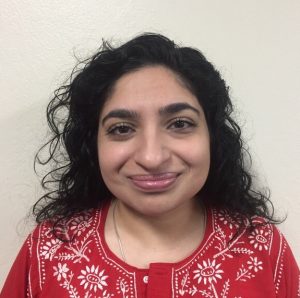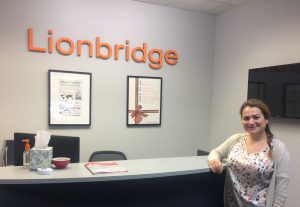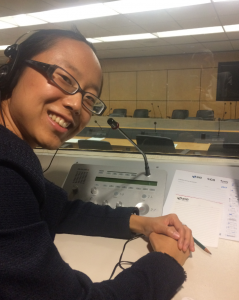Andrea Goethals (MATI 2021) and I shared a good laugh when she told me recently what was going through her mind in our first meeting: During New Student Orientation, someone suggested that she should meet her Career Advisor, so she made an appointment with me. After the initial exchange of pleasantries, I asked her what her career goals were after graduation. Neither of us can remember what her reply was, but what was going through her mind was: “Uh, I haven’t thought that far. I just want to pass my classes.”
Fast forward to 2022, she is working as a part time Localization Project Manager while building her translation and interpretation freelance career. How she has navigated her career path is admirable – resourceful, focused plus a healthy portion of good humor.
- What do you like most about working as a project manager and freelance translator/interpreter respectively?
As a project manager, I get to see all the behind-the-scenes things that go into setting up a job/project, reviewing linguist resumes and rates, assigning a linguist etc. It’s interesting to see both sides of the project, and it has helped me better understand and appreciate the hard work that project managers do! Since I’m also a freelancer, I can relate to questions from the linguists and learn from the experienced translators and interpreters I assign.
I pick up small things like how different people format their resumes and email signatures, how they write their emails, the questions they ask before accepting a job, and the way they handle themselves in difficult situations.
As a freelancer, I love that I can pick my own projects and my own hours. I’ve worked (remotely) with people from all over the world on a variety of different topics. I love using my language skills and working with other people who have the same passion.
I think the mix of translation and interpretation is nice because they complement each other well. Sometimes, I get a little worn out from several interpreting jobs in a row, so, I may want to sit quietly and translate for a while. Other times, if I’ve been doing a lot of translation projects, I get an itch to interpret and flex my oral language skills. It’s a nice balance.
- I understand that you were offered a full-time position as a project manager, but you decided to stay part time and continue to build your freelance career. Why?
Yes, that was a hard choice! But at the end of the day, my heart really lies with translation and interpretation. I really enjoy project management as well, but I also wanted to give interpretation, especially, a try. Interpreting and second languages in general, are skills that need to be practiced regularly. If you don’t use it, you lose it. And I still have a lot to learn!
I’ve also come to realize that building a freelance career is a long, slow process. I didn’t want to lose the momentum and progress I’ve already made by working full time, because realistically, I didn’t know if I’d still be motivated to keep taking on side work. I wanted to be able to say “yes” to interpretation jobs that come my way and be able to offer competitive turnaround times for translation projects. Sometimes, it seems like the most important thing for getting a job is simply being available for an urgent, last-minute request. I wanted to be able to be that go-to person for potential new clients.
- One of the complaints I hear often from freelancers is: “I am on many LSPs’ rosters, but I don’t get work from them.” Now that you have the PM’s perspective, how would freelancers get to the top of your “go-to list”?
I’ve had that same question, myself! Being on the project management side has taught me that it’s really about the little things. I think one of the biggest things is simply being responsive and professional via email. Usually, the person who responds first to a request gets the job. Responding quickly in a professional way huge, it makes the PM’s job so much easier. Even just a short message confirming receipt is very useful to the PM.
Another big one is responding to a project manager even if you’re not available to take on the job. As a PM, I appreciate that just as much as the people who respond accepting the job, because I know they’ve seen my message and I can move on with my search. I’m much more likely to send another request for a future assignment to the person who responding saying they’re not available than to the person who didn’t respond at all.
- What role has your network (professional associations, colleagues, alumni) play in your career thus far? Any tips for newbies?
My network has been crucial! All my first freelance projects came from colleagues who recommended me. I went to the ATA conference the October after I graduated, and I highly recommend it! For me, it was encouraging to simply meet other professionals who actually had a fruitful freelance career in my language pair (which felt impossible when I first started, and often still does). It showed me that there is enough work to go around, and if these 1000+ are all doing it, maybe I can, too.
It was really interesting to hear the different paths people had taken to get to where they are and gave me some good ideas for my business. I ended up getting a few awesome jobs from the connections I made at that first conference, too.
I went again this year and ended up sharing a cab with you, Winnie, which is what brought me to this blog! So, you just never know who you’re going to talk to and where it will lead. J
- Knowing what you know now, what would you have done differently when you were a student?
I would let myself relax a little bit more. During school and right after graduation, I was very anxious about starting a career in translation and interpretation because I didn’t understand how I was going to start freelancing once I graduated. I really wanted the satisfaction of having a stable job with a regular income and being “done”. Or I at least wanted some kind of clear-cut process I could follow to get started. I’m a hard worker and a faster learner, so I was craving structure to pour my anxious energy into.
But I realized that freelancing is much more fluid than that. I didn’t really start getting semi-regular work until around November after I graduated (in May). I spent the summer scouring job boards, cold calling LSPs and stressing out about not working. I felt like I was never doing enough but I also wasn’t getting any “results.” Once I started accepting that freelancing was going to be a much slower, gradual process, I felt like things started to happen more naturally. I still looked for work and practiced my skills, but I also got a side job to pay the bills and let myself off the hook every now and then.
I wish I could have enjoyed that downtime in the beginning a little more and not stressed so much, because it didn’t help. But if someone had told me that back then, I don’t think I would have listened. (Actually, in hindsight, ALL of my professors did tell me that, and I didn’t believe them. I guess you just have to learn some things for yourself!)
Winnie Heh
Career Advisor
MIIS
